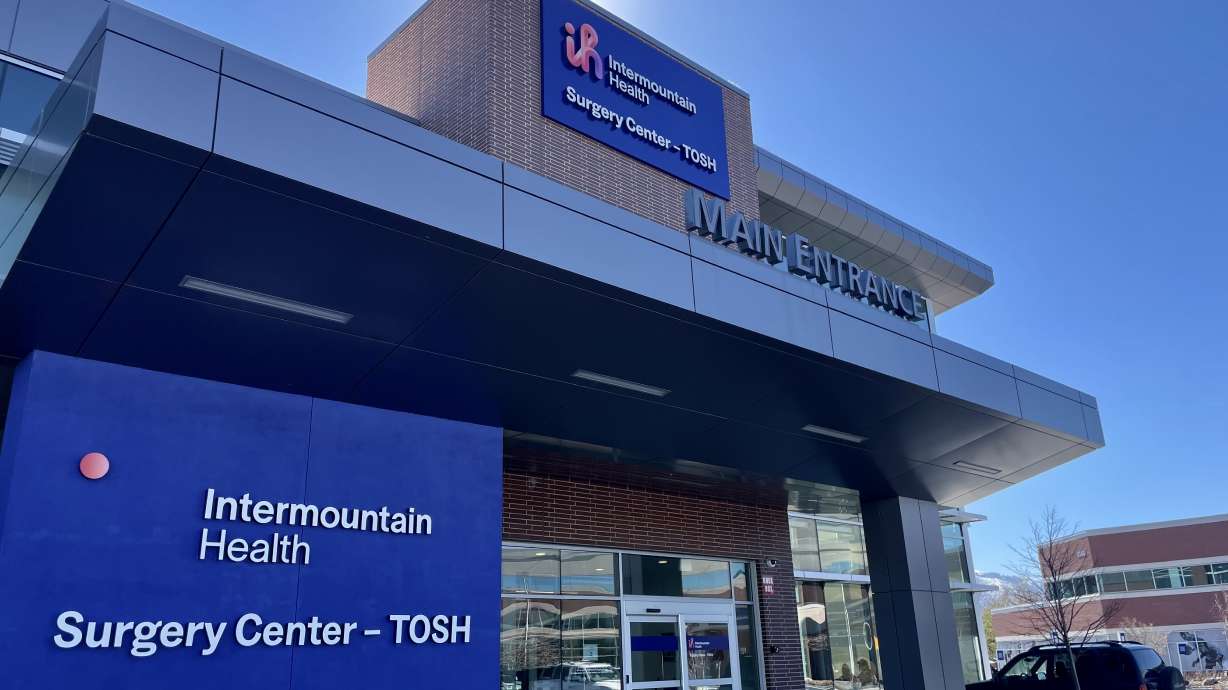Estimated read time: 5-6 minutes
- A recent study by Intermountain Health uses at-home devices to monitor post-surgery patients taking prescribed opioids.
- Devices alerted 26 of 359 patients in the study, potentially saving 14 lives from complications.
- Study advocates for accessible monitoring devices, aiming to prevent opioid-related respiratory depression.
MURRAY — Parker Stewart was a 21-year-old newlywed in 2016 when he died in his sleep three days after a routine tonsillectomy.
He had been prescribed an opioid to help manage his post-operation pain and took half a dose before bed that night, leading his loved ones and Bennion to believe his death was caused by opioid-induced respiratory depression. He was officially diagnosed by the state medical examiner with pneumonia, but Bennion believes this was a misdiagnosis because he did not show symptoms of pneumonia before he died other than having a sore throat, which she attributes to the tonsillectomy.
Stewart's mother, Yvonne Gardner, said while she was grieving the loss of her son, she was contacted by others who believed they had lost their loved ones to opioid-induced respiratory depression, as well.
"I got so many calls from people that had been affected by this. They had the same type of symptoms and the same type of devastating consequences of losing loved ones and family members," said Gardner. "When we started seeing such a pattern that a 3-year-old could die from the same surgery — and my son who was 21 and 30-year-olds, we came to the conclusion that there was something wrong here, that something needed to be fixed."
Researchers at Intermountain Health on Wednesday announced study results that could end up preventing serious complications, including death, for patients taking prescribed opioid medication after surgery by using an at-home device that monitors blood oxygen levels.
The study began in 2019 when researchers provided at-home monitors to patients who received same-day surgery at the Intermountain Orthopedic Specialty Hospital. All participants were considered at high risk for developing opioid-induced respiratory depression, which occurs when a person's drive to breathe is suppressed by an opioid medication. Participants and their caregivers used the device to continuously monitor the patient's blood oxygen level for four days after their operation.
Of the 359 patients in the study, 26 were alerted by the device when experiencing low oxygen saturation levels and ended up needing emergency medical care. Researchers estimate that 14 of those patients' lives were saved by the alert due to their symptoms being related to opioid-induced respiratory depression or other opioid-related events.
"We're often sending patients home with untrained caregivers who might not know what to do or what signs to look for that could indicate opioid-induced respiratory depression," said Dr. Robert Mazzola, principal investigator of the study and enterprise senior medical director for sleep services at Intermountain Health. "We found that with a simple, commercially available pulse oximeter and monitoring device, we can save lives."
During the study, researchers used various types of devices to monitor patients' blood oxygen levels, but they found the device that would be most feasible for patients to use as prescribed was a monitor that attaches to the finger and measures oxygen saturation through light waves. The newest version of the device has one wire that runs from the finger to a strap on the wrist and can connect to the patient or caretaker's phone via Bluetooth.
According to Kim Bennion, research director of respiratory care clinical services at Intermountain Health and co-author of the study, the device is FDA-approved and will be covered by most insurances. Intermountain Health is currently working to integrate the device into its operations.
Patients who present risk factors for opioid-induced respiratory depression were identified as those who suffer from sleep apnea and do not utilize CPAP machines to help them breathe while sleeping or showed signs of undiagnosed sleep apnea such as snoring, high blood pressure or high body mass index. But Bennion, who has lost two of her family members to opioid-induced respiratory depression, explained that the condition can affect anyone and patients should exercise caution when taking opioids.
"Any time you take opioids, even if you never have before — and sometimes that puts you at more risk — we cannot estimate the sedation level that you might get," she said. "It can happen to anyone, the young and the old. Just use caution and really speak to your physician about the doses that you're being asked to take or being prescribed, and please, please reach out for monitors. They're available at a very low cost. The cost of a life is worth so much more than these devices even begin to cost."
In 2018, Bennion and Gardner were advocates for SCR4, a measure that became known as "Parker's bill" and was used to urge the Department of Health and other researchers to further study opioid-induced respiratory depression. It also encouraged physicians to prescribe in-home monitoring devices for those using opioids after surgery that may be at risk. The bill, sponsored by Sen. Kevin Van Tassell, R-Vernal, passed the committee unanimously and was signed by then-Gov. Gary Herbert.
Intermountain Health's study is the latest step in preventing respiratory depression deaths caused by opioids, said Gardner, and she hopes the information will benefit families like hers throughout the country.
"It's hard for families, and I wouldn't have been able to do it personally," she said. "I'm ... just glad that (Bennion) and the others kept the push behind it because it is hard. It's hard when you lose somebody.
"And I just appreciate all that they've done, getting the study moved forward. I hope that others will look to the information that they've gleaned and be able to change their protocols so others can be saved."








